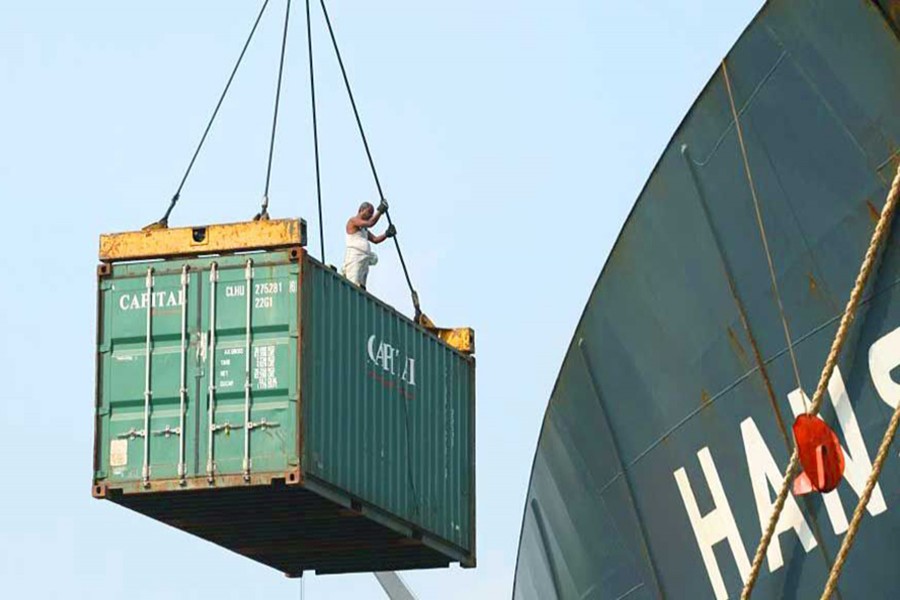The government has finalised the draft export policy for the next three years through 2021, attaching highest priority to denim, active pharmaceutical ingredients (API) and footwear, officials said.
Light engineering products such as motorcycle and battery, photovoltaic modules, and cashew nut (raw and processed), processed crab and toy are expected to flourish as they have been included in the "special development" sectors, they added.
Value addition requirement for non-traditional products has been proposed to be brought down to 30 per cent from existing 40 per cent, according to the draft policy (2018-2021).
"The main objective of the policy is to make the trade regime time-befitting, taking the recent global trade situation into consideration," a commerce ministry official said.
The economic slowdown in developed countries, role of the World Trade Organisation in the changing situation, possible sub-regional connectivity among Bangladesh, India, Nepal and Bhutan and China's 'One Belt One Road' initiative have been taken into account while drafting the policy, he added.
Developing trade relations with the fast-growing Asian giants has also been a focus.
The prioritised and special development sectors get a string of government policy support, including tax waiver, incentives, bonded warehouse facility and duty-free import of equipment and machinery, he added.
The proposed changes have been synchronised with the measures to achieve $ 60 billion exports income by 2021, he added.
The existing top priority sectors are high value-added readymade garment and accessories, software and IT-enabled services, ICT products, pharmaceuticals, shipbuilding, shoe and leather products, jute goods, plastic goods, agro and agro-processed products, furniture, home textiles and terry towel, home furnishing and luggage.
Multifarious jute-based products, electronic and electric products, ceramics, light engineering products (auto-parts and bicycle), value-added frozen fish, paper, printing and packaging, crude diamond and jewelry, paper and paper products, rubber, silk products, handicraft and cottage products, handloom based products including lungi and coconut coir are the areas categorised as special development sectors.
A new chapter has been added to the plastic sector in the draft policy to help the sector flourish further, trade officials said.
Steps would be taken to set up a plastic industrial park in Munshiganj and special industrial zones and introduction of inter bond transfer facilities for the sector.
The draft policy also proposed measures so that both deemed and direct plastic exporters get financial support from the Export Development Fund.
Policy support will be provided for the projects related to the blue economy, according to the draft policy.


